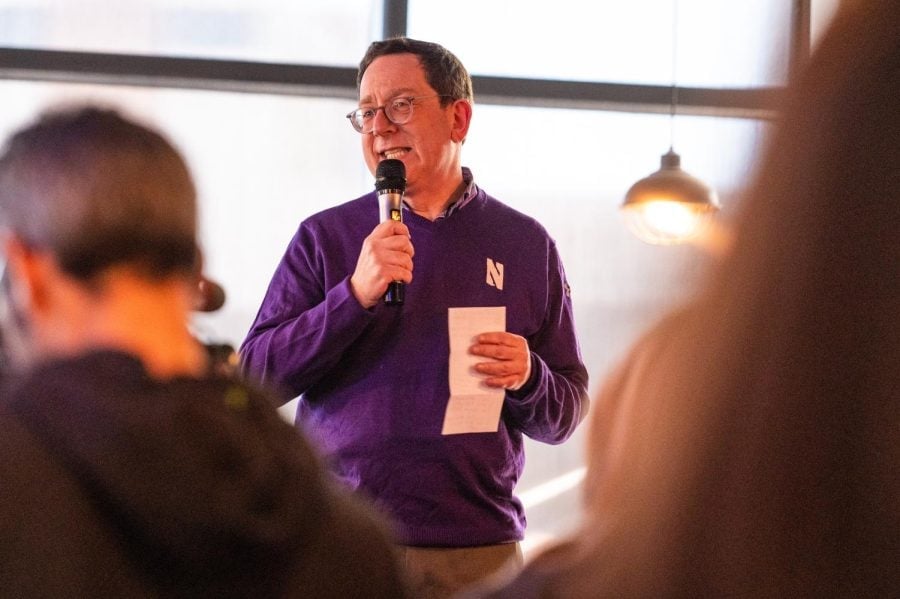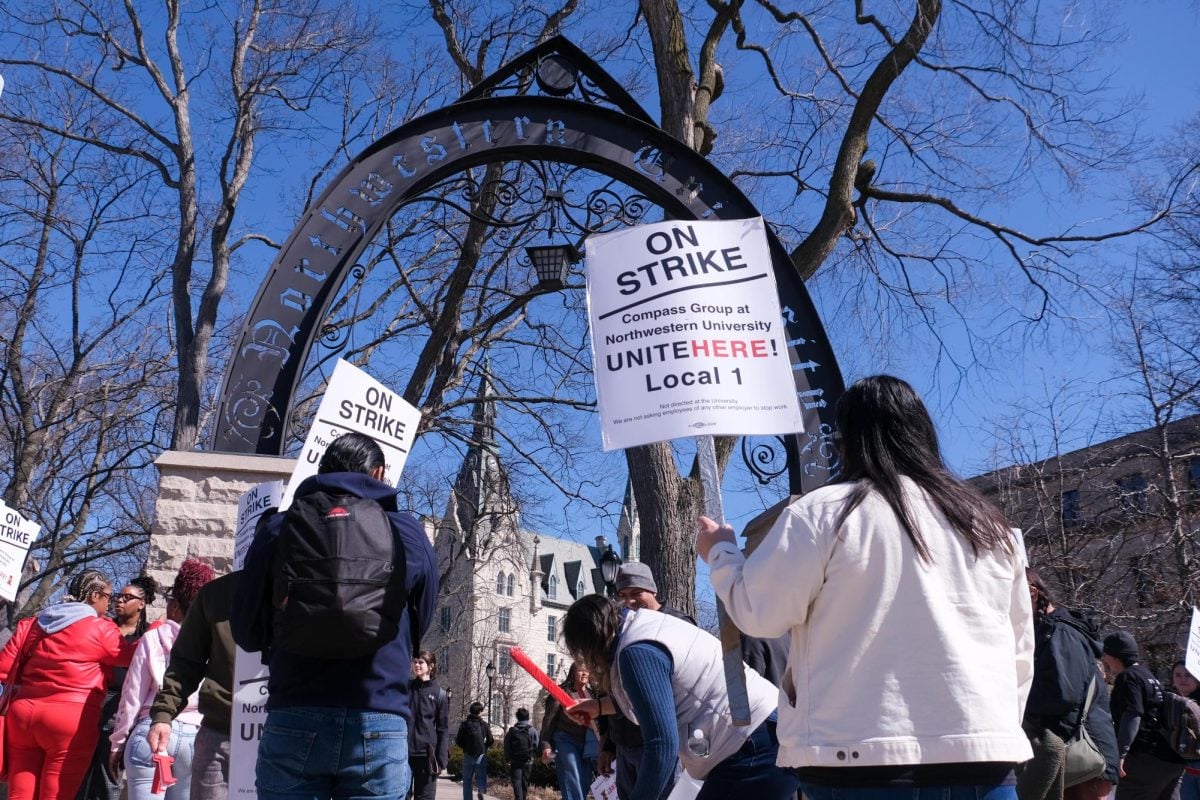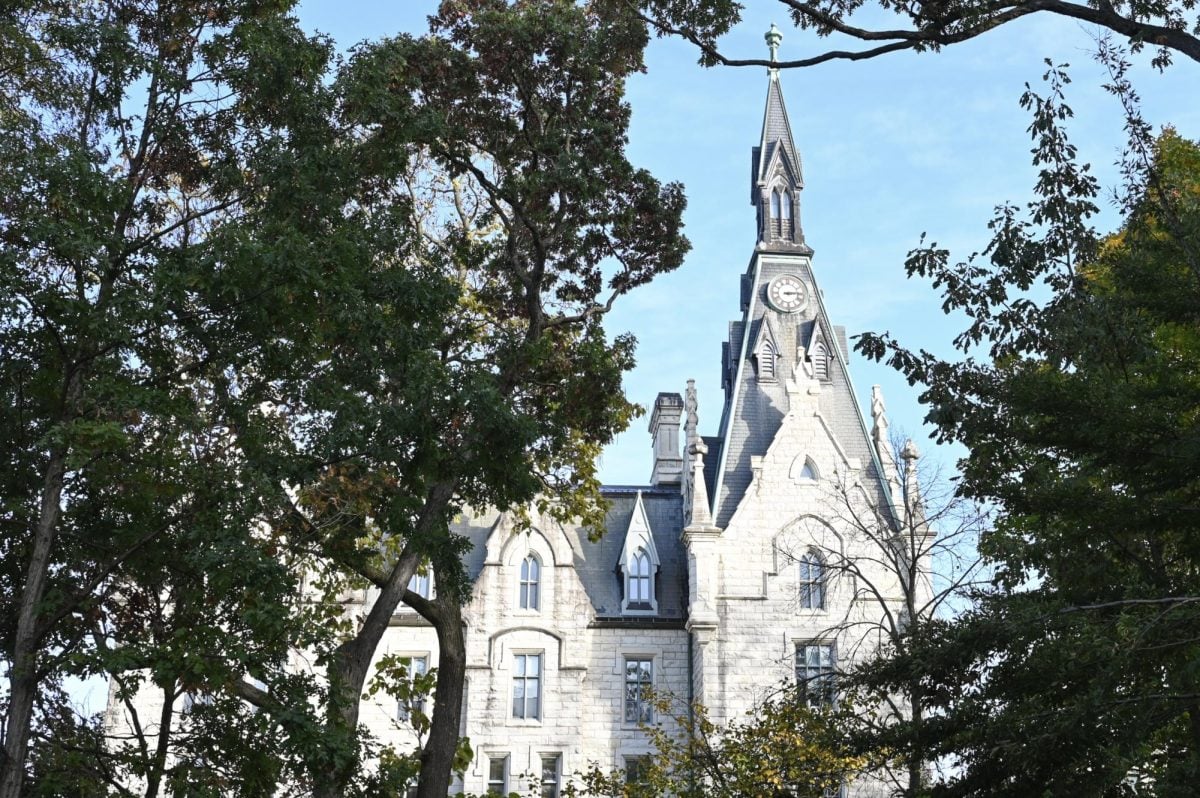A year and a half into his tenure, University President Michael Schill has been tasked with leading Northwestern through a controversial hazing scandal in the athletics department, the end of affirmative action, and a national debate over the role of college campuses in protecting free speech and combating hate.
The Daily sat down with Schill Tuesday to discuss his new advisory committees on antisemitism and free speech, concerns over alleged turmoil at Northwestern Law and rising tuition costs.
This interview has been edited lightly for clarity and brevity.
The Daily: What was your reaction to criticism of the new President’s Advisory Committee on Antisemitism and Hate for initially not explicitly including Islamophobia in the committee’s mission?
Schill: I made the decision to come up with this name because I had been concerned about the growth of antisemitism both in the United States and in the world. So, I’d been thinking that we might do something along those lines. And then, when the Hamas attack on Israel occurred and we started to see events at many universities which were antisemitic, I knew that we would need to do something here. At the same time, I also had met with some of our Muslim students and Palestinian students the year before, and I realized there were issues in their community, though very different issues, in most respects.
Antisemitism had been the area of focus for me coming out of (the 2017 white supremacist rally in) Charlottesville, but I also wanted us to do something special and unlike other universities. Most universities establishing these task forces don’t combine them. If you look at the membership of the committee, it was very, very carefully put together so we could bring people together with all those perspectives. And the reason that I wanted to do that together is because I really believe in dialogue.
What I wanted to do was put people in the room together to try to understand each other and to understand the various challenges each community is facing –– and they’re very, very different. I want to look at, what is the extent of antisemitism on campus, and what is the extent of Islamophobia on campus? I want to come up with ways to make the problem better. How do we make students feel safe? And how do we at the same time, protect our core value of free expression?
The Daily: Along those lines, what led to the creation of a second Advisory Committee on Free Expression and Institutional Speech?
Schill: In my first message following the attack on Israel, I expressed my view that the University should not be making statements on political and geopolitical matters because, essentially, people at the University have many different views on many different issues.
I wasn’t expressing the view as a policy of the University’s. We never had a committee and never had any process for doing that. So, right after that, myself and the board chair and a number of folks decided that we need to socialize this, and we need to come up with a University consensus on institutional speech.
They are now going to draft a statement that they’re going to propose to me on free expression, whether there are boundaries to free expression, what are the guardrails, if there are any, and then what should our policy be on institutional speech.
The Daily: There are only two people of color on the 11-person committee –– was diversity of background something you considered in the selection process?
Schill: I always consider diversity of background. But it’s multi-dimensional: diversity of viewpoint, diversity of experience, racial diversity, religious diversity, diversity across the various schools … I think we created a really good committee.
The Daily: Are you taking any steps to address allegations raised in The Daily about a toxic work environment at the Pritzker School of Law under Dean Hari Osofsky’s leadership?
Schill: We support the dean. We think the dean has done a lot of good things for the law school. And at the same time, we take allegations of management issues, inappropriate behavior … seriously. We will look into them, and we will try to make sure that, if there’s any validity to any of them, that they have been remediated.
The Daily: As tuition continues to rise, do you have anything to say to students and families who might be concerned about the burden of tuition costs and where that spending might be going?
Schill: Over 60% of the students here are receiving financial aid. The way universities refer to this is their “discount rate,” and ours is very high, meaning that, for every dollar of tuition, we give back a substantial amount.
One of the things that we’re doing is we’re going to start a campaign to raise dollars for financial aid. So the money we give for our financial aid dollars mostly comes out of the operating budget, which means tuition dollars. And, a lot of our peers have much higher percentages coming out of endowed funds. It’s one of my priorities, to be able to raise dollars from philanthropy to pay for financial aid.
Related Stories:
— In Focus: Northwestern Law employees, students allege toxic environment under Dean Osofsky
— Michael Schill announces new committee on free expression at NU
— Michael Schill announces members of NU antisemitism committee







